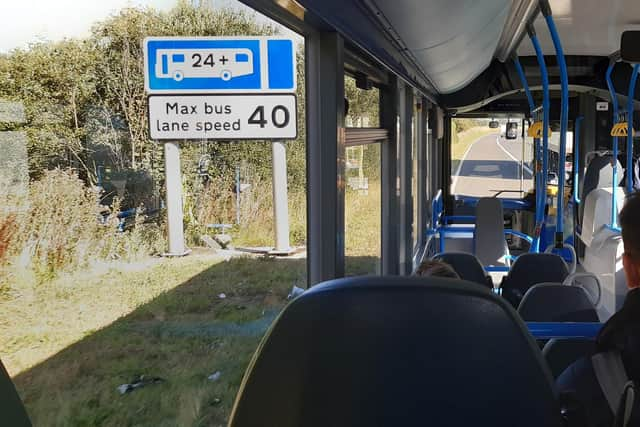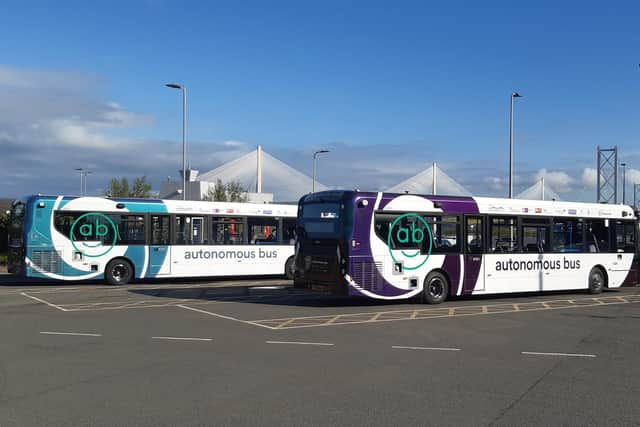World-first Edinburgh-Fife autonomous Stagecoach buses: Wear your seat belt! – Alastair Dalton
I was surprised to read that when the world’s first full-size autonomous buses started running between Edinburgh and Fife in May, passengers were advised to wear seat belts. But I’m glad I did.
The best test of a new service is try it once the publicity razzamatazz accompanying its launch has subsided and it’s operating in earnest with the fare-paying public on board.
Advertisement
Hide AdAdvertisement
Hide AdFour months after its debut seemed the perfect time to put Stagecoach’s AB1 route, between Edinburgh Park Station and Ferrytoll park and ride, just north of the Forth, to the test.


I was welcomed on board the single decker by the “safety driver” and the “bus captain”, the latter of whom was keen to explain the features of the bus.
As there were few other passengers and no stops until the Forth Road Bridge, we engaged in a prolonged and enlightening conversation. As on many other occasions, I’m glad that despite covering transport for two decades, I’m still hardly ever recognised by operators’ chatty and informative staff.
About the first thing I was told was that wearing a seat belt was recommended. I use them on coaches, but had been previously unaware they were fitted on buses, including on some other Stagecoach routes.
Dutifully, I strapped myself in, not thinking I’d need it as a restraint any more than on a normal car journey. But how wrong I was.


That’s because for most of the journey, the bus was driven by a machine, not a human, perhaps more concerned about its own self-preservation – though it probably doesn’t have that level of artificial intelligence – than the comfort of passengers.
So when a lorry pulled in too sharply in front of the bus, as it did several times on my trip and I’m told often happens, the software applied the brakes noticeably more sharply than a driver would, and my seat belt proved its worth.
The technology is also clearly still at the trial stage because the bus had problems with traffic cones too close to the side of the carriageway too, when the safety driver has been known to take over.
Advertisement
Hide AdAdvertisement
Hide AdThe bus drives in autonomous mode for all, but about two miles of its 14-mile route, albeit almost all of that on motorways – the M8, M9 and M90. But I’m told safety drivers normally keep their hands on the wheel even though they are not turning it, so they can feel for any sudden movement that might require them to take over.
The vehicle is still driven manually through the fiddly bits, such as negotiating junctions at either end, and pulling in at the sole intermediate stop, on the south side of the Forth Road Bridge. However, what I also discovered was the safety driver is also in charge crossing the bridge itself.
The captain told me this was because passengers would be nervous of a bus being driven autonomously 150ft above the water, but Stagecoach said it was just because that part of the route was still being tested and nothing to do with people being worried.
Despite the quirks, I was happy to take the bus on my return journey, but there’s clearly some fine tuning needed.
Comments
Want to join the conversation? Please or to comment on this article.